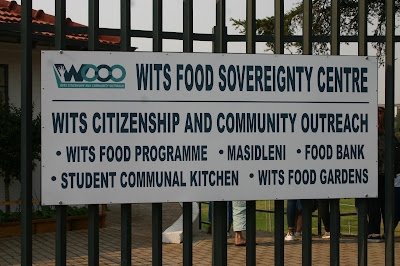Lessons from a 'Forgotten World'
Forgotten World is a book by Perter Delius, Tim Maggs and Alex Schoeman which goes through the discovery of what remains of settlements of Bokoni, a region of Mpumalanga, that is from the 1500s to the 1820s. The Bakoni people are a forgotten civilization that successfully modified the landscape through agriculture in precolonial times; and are an example of an agro-food system before current food regimes. What follows are our thoughts on this discovery which are based on watching the documentary version of this book.
One of the main things we found particularly interesting was how the movie described initial thoughts on the discovery having been racist perceptions which assumed that the settlement couldn't have been developed by Africans. What was understood is the notion that African lifestyles were static and not capable of evolving or adapting to such advanced settlement lifestyles; in which case exotic theories were used to explain why these sites were found there. What we noted is that these notions are from literature which is as recent as the 21st century; where historical events such as colonialism and Apartheid in South Africa have shown the extent of change which the African nation can achieve. It is a source of worry that such notions could still exist about a people who have evolved with their evolving challenges in a highly dynamic space.
It reminds us how important it is to question history as well as the perspectives from which it is written. This is supported by evidence from the sites which suggest that these settlements were developed over time with the Bakoni learning better ways of structuring their homesteads and road networks. This shows that no one had to come and teach the Bakoni how to develop their infrastructure, but instead they learned the use of the resources that they had and how best to use them over time and with experience. They succeeded to shape their environment to make the best uses of it, without leaving an heavy imprint on it. Indeed, they worked the land for hundreds of years, but still managed to live lightly on the land.
Relating the activities of the people of Bokoni to the content of our GEOG3026 course on Food Security Politics and Culture, we can say that they illustrate an agro-food systems approach to food security where agricultural activities were developed, over time, for the production and distribution of food to nourish the people of Bokoni. This is a far cry from the global food regimes in place today as an approach to food security which goes to show how local structures will work differently to global structures of food. Considering the notion of food sovereignty, it only applies on a local scale and it could be said that the Bakoni were food sovereign. Having had control over their food production processes; and although they were part of trade with other regions in the country, their needs and aspirations continued to reign above the demands of the markets they partook in. This is a far cry from the reality of many in today's world of global monopolies in food markets where 'choice' and 'preference' for the masses is mere rhetoric. We will venture to address these modern issues with food regimes in future posts.
Here are pictures from the documentary, which show the complex structure of the agrarian organization of the Bakoni civilization:
 |
| Picture taken from: http://icarusfilms.com/if-forwor |
 |
| Picture taken from: http://icarusfilms.com/if-forwor |
Sources: http://icarusfilms.com/if-forwor


Comments
Post a Comment